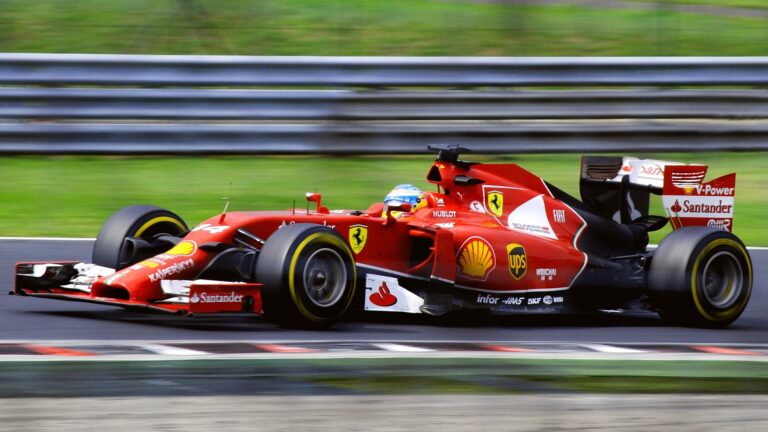The risks of alcohol sponsorship for Formula One racing
Since its inception in 1950, Formula One racing has been sponsored by a variety of companies, many of which are associated with the alcohol industry. In recent years, however, there has been increasing public pressure to ban alcohol sponsorship from the sport, due to the potential risks that it poses to both drivers and spectators.
While it is true that alcohol sponsorship provides a significant financial boost to Formula One racing teams, there are a number of reasons why this type of sponsorship should be discouraged. Firstly, there is a growing body of evidence which suggests that alcohol consumption can have a negative impact on driver performance. Secondly, excessive alcohol consumption is a major cause of road accidents, and so sponsoring a sport which encourages high-speed driving is potentially very dangerous. Finally, spectators at Formula One races are often exposed to high levels of noise and excitement, which can lead them to drink excessively. This can create an atmosphere of drunkenness and violence, which is not conducive to family friendly viewing.
In light of these risks, it is clear that Formula One racing would be better off without alcohol sponsorship. While it may be difficult to completely eliminate this type of sponsorship from the sport, it is important that steps are taken to reduce its impact.
What is Formula One racing?
Formula One racing is a type of auto racing that is sanctioned by the Fédération Internationale de l’Automobile (FIA). The FIA is the governing body for motorsport worldwide. The races are held on purpose-built circuits and public roads. The cars that compete in Formula One racing are the fastest and most technologically advanced in the world.
The races are very popular, and they are broadcast to TV audiences around the world. In recent years, however, there has been some controversy surrounding the sport due to its association with alcohol sponsorship.
There are a number of risks associated with alcohol sponsorship of Formula One racing. These include:
– normalizing excessive drinking among spectators;
– increasing alcohol consumption among young people;
– promoting risky behaviors such as driving while intoxicated;
– encouraging irresponsible drinking by drivers and team members;
– contributing to a culture of binge drinking.
What are the risks of alcohol sponsorship for Formula One racing?
Alcohol sponsorship in Formula One racing is a controversial topic. Some people argue that it promotes an unhealthy relationship with alcohol, while others argue that it is a necessary part of the sport.
There are risks associated with alcohol sponsorship in Formula One racing. These risks include:
-Normalizing the consumption of alcohol among young people
-Encouraging risky or dangerous behaviour
-Leading to problems with addiction and alcoholism
These risks need to be carefully considered before any decisions are made about alcohol sponsorship in Formula One racing.
How does alcohol sponsorship impact Formula One racing?
Formula One is the highest class of single-seat auto racing that is sanctioned by the Fédération Internationale de l’Automobile (FIA). The FIA World Championship for Drivers has been held since 1950, and the Constructors’ Championship has been held since 1958.
Alcohol sponsorship in Formula One began with the Brabham team in 1968, which was sponsored by Martini Racing. Since then, alcohol sponsorships have become commonplace in the sport, with companies such as John Player Special, West, Mild Seven, Winston and Red Bull all having served as sponsors for various teams and drivers.
The risks of alcohol sponsorship for Formula One are manifold. First and foremost amongst these is the danger that it promotes excessive drinking and driving. According to a report by the World Health Organization, alcohol is a factor in approximately one third of all road traffic fatalities globally.
Formula One racing is already a high-risk sport; adding alcohol into the mix only increases the dangers for both drivers and spectators alike. In addition, many countries have laws restricting or banning alcohol advertising; Formula One flouts these laws by displaying logos and sponsoring cars plastered with alcohol advertising. This not only breaks local laws, but also sets a bad example for fans who may be tempted to drink and drive after seeing their favorite driver do so on television.
Formula One’s reliance on alcohol sponsorship also means that the sport is particularly vulnerable to any changes in public opinion or government regulation concerning alcohol advertising. If public opinion were to turn against alcohol sponsorship of sporting events, or if governments were to enact stricter regulations regarding such sponsorship, Formula One would be forced to find new sources of funding.
The risks associated with alcohol sponsorship in Formula One are significant, but they are just a small part of the larger picture when it comes to the dangers posed by this dangerous sport.


